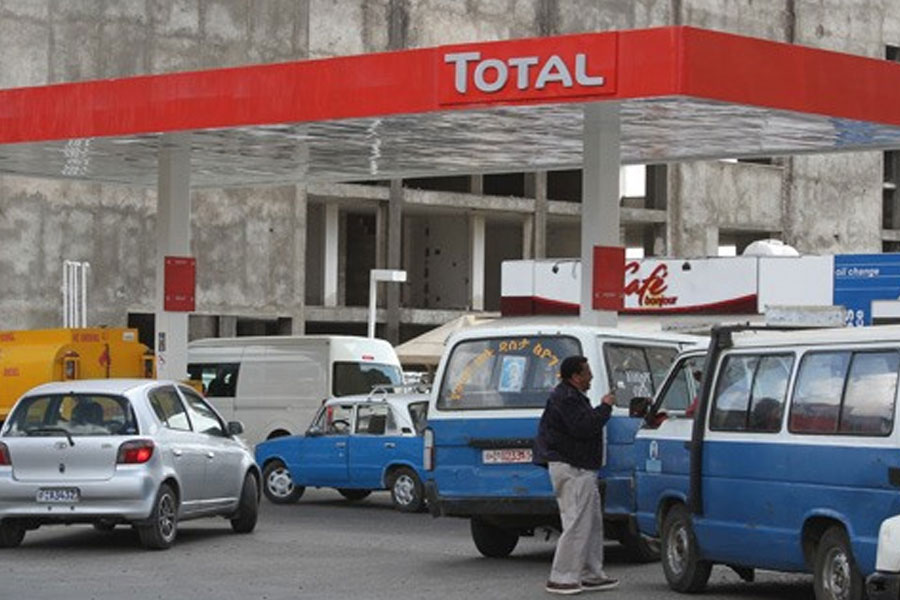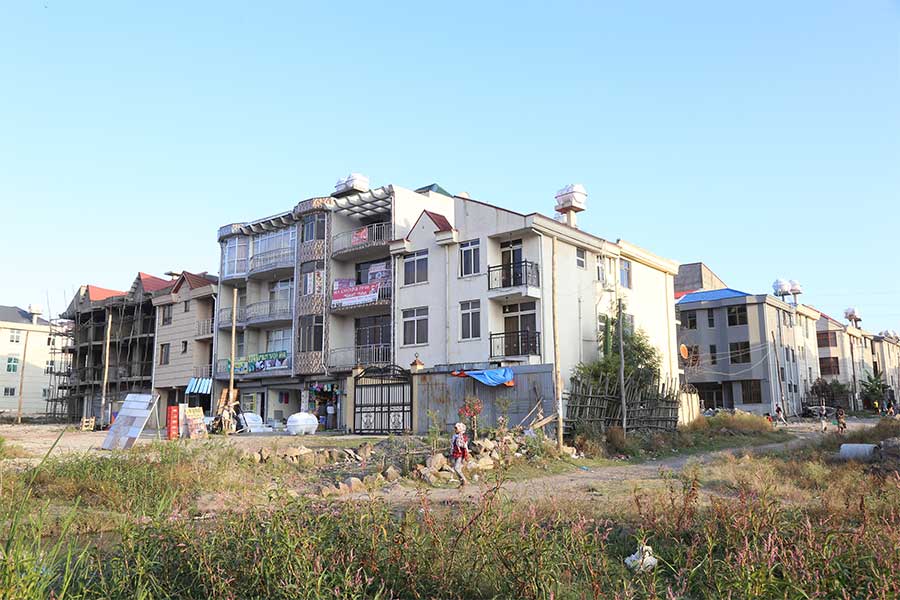
Fortune News | Dec 30,2023
Leaders of an association representing fuel truckers say they have run out of patience waiting for the federal government to adjust fuel transportation tariffs, threatening to strike if their demands are not met in 10 days. Their actions, however, are not protected by the country's laws, experts warn.
Fuel trucks owners want to see an increase in transport fees paid for ferrying petroleum products from ports in Djibouti.
The Ethiopian Bulk Fuel Transport Owners' Association had its representatives meet at the Wabe Shebelle Hotel, on Ras Abebe Aregay Street, last week. They urged federal authorities to increase fees to 100,000 Br from the 75,000 Br set by the Ministry of Transport & Logistics in January 2021. They claim the fee was determined after a study the lobby group conducted a couple of months ago. The Ministry set the tariff at 120,000 Br for transport from Djibouti to Bahir Dar via the capital.
Around 60pc of the 1.3 million registered vehicles in the country operate in Addis Abeba, the destination for nearly two-thirds of all petroleum imports. Fuel is distributed through 41 oil companies and over 1,200 pumping stations.
The Association says the fuel transportation business, which can ferry up to 6.6 million tonnes annually, is valued at 20 billion Br. However, operational costs have disabled the industry, with prices for parts more than doubling over the past year. Its leaders have been pleading for a tariff adjustment since last September.
“The financial pressure is forcing us to stop what we love doing,” said Tsega Asamere, chairperson of the Association.
In January last year, an IVECO brand fuel truck was available for 5.2 million Br, a little over one million Birr cheaper than a Volvo truck's worth. The Chinese Sino Truck had a price tag of around 3.5 million Br. Prices have since grown by as much as 180pc.
Expenditures on tyres, of which the fuel trucks have up to two dozen, have also been arduous. In recent months, expensive brands from Europe and Japan have seen prices more than double to 54,000 Br apiece. Cheaper brands from China have seen similar spikes, retailing for around 35,000 Br. Higher quality tyres require changing after 80,000Km (approximately 45 round trips between Djibouti and the capital), 30,000Km less for low-quality tyres.
Fuel transporters are further incensed by the higher payments made to bulk dry cargo trucks for similar trips. They make an average of 120,000 Br for transporting goods from Djibouti to Addis Abeba, while the going rate is 166,000 Br from Djibouti to Bahir Dar through the capital. Tariffs for fuel transportation are tied to fuel prices and the price build-up calculated by experts at the Ministry of Trade & Regional Integration. They are heavily regulated and unlikely to change once set for a year.
Federal officials have been urged to review tariffs and make adjustments every year, according to Abayneh Kebede, a member of the board. He also serves in the government-formed committee set up to adjust the tariff.
“Joining the industry is difficult," said Abayneh. "No one wants to buy trucks and get into the business.”
Last January, a committee comprising representatives of the Association, the ministries of Trade and Transport, and the Petroleum & Energy Authority, was formed to study the costs and develop a new tariff. The Association has submitted a study suggesting that operational costs have increased to 100,000 Br a trip.
Endalkachew Tsegaye, communications head at the Transport Ministry, says the Ministry's study is in its final stages.
Abayneh says the lobby group has no way of knowing how long it will take for officials to come to a decision.
“They know the business isn’t doing well, but they aren’t deciding within a reasonable period,” said Abayneh.
The decision has been delayed until the study is completed, with Endalkachew blaming "issues gripping the country.”
The Association claims that truck owners are leaving the business en masse. Around a fifth of the 3,500 trucks it oversees have already ceased operations.
However, the executives of the state-owned Ethiopian Petroleum Supply Enterprise claim there have been no interruptions in the supply and distribution of the 2.7 million litres of fuel imported daily.
"Considering the bad conditions of the roads and meagre payments for the service, we see that they're suffering,” said Tadesse Hailemariam, chief executive officer (CEO) of the Enterprise. “They should be appreciated.”
Yohannes Woldegebriel, a legal expert and former public prosecutor, warns truck owners that attempts to boycott are not supported by labour laws, which give legal protection to workers (in this case, drivers) but not employers. Yohannes sees over-regulation in the fuel supply chain as the main issue behind the dispute.
"It should be deregulated," Yohannes said. "Or the government should provide incentives like tax reductions or other protection from the operational cost increases."
PUBLISHED ON
Apr 02,2022 [ VOL
23 , NO
1144]

Fortune News | Mar 13,2021

Fortune News | Dec 14,2019

Radar | May 13,2023

Viewpoints | Jun 25,2022

Fortune News | May 17,2025

Dec 22 , 2024 . By TIZITA SHEWAFERAW
Charged with transforming colossal state-owned enterprises into modern and competitiv...

Aug 18 , 2024 . By AKSAH ITALO
Although predictable Yonas Zerihun's job in the ride-hailing service is not immune to...

Jul 28 , 2024 . By TIZITA SHEWAFERAW
Unhabitual, perhaps too many, Samuel Gebreyohannes, 38, used to occasionally enjoy a couple of beers at breakfast. However, he recently swit...

Jul 13 , 2024 . By AKSAH ITALO
Investors who rely on tractors, trucks, and field vehicles for commuting, transporting commodities, and f...

Oct 25 , 2025
The regulatory machinery is on overdrive. In only two years, no fewer than 35 new pro...

Oct 18 , 2025
The political establishment, notably the ruling party and its top brass, has become p...

Oct 11 , 2025
Ladislas Farago, a roving Associated Press (AP) correspondent, arrived in Ethiopia in...

Oct 4 , 2025
Eyob Tekalegn (PhD) had been in the Governor's chair for only weeks when, on Septembe...